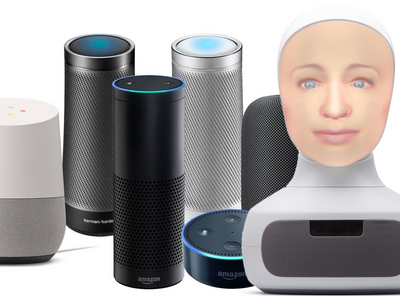After an introduction, the students are divided into project groups and assigned a supervisor. The groups will then work on defining an issue that requires implementation and evaluation of a conversational system and make a project plan. As part of this, students will seek out a number of relevant scientific articles. The project plan and literature review will then be presented in a written report and orally at a seminar. The completed work will also be presented in a written final report and presented at a seminar where the students oppose each other's work.
DT2151 Project in Conversational Systems 7.5 credits

Conversational systems allow users to interact with machines through spoken or written interaction. Examples include smart speakers, voice assistants, chatbots, and social robots.
In this course, the students will work in projects with a scientific approach to develop a conversational system and evaluate it with users. This involves the use of technologies such as natural language processing, speech technology, and multi-modal interfaces.
Information per course offering
Information for Autumn 2024 Start 28 Oct 2024 programme students
- Course location
KTH Campus
- Duration
- 28 Oct 2024 - 13 Jan 2025
- Periods
- P2 (7.5 hp)
- Pace of study
50%
- Application code
50264
- Form of study
Normal Daytime
- Language of instruction
English
- Course memo
- Course memo is not published
- Number of places
Places are not limited
- Target group
Open to all programmes as long as it can be included in your programme.
- Planned modular schedule
- [object Object]
- Schedule
- Part of programme
Master's Programme, Computer Science, åk 2, CSCS, Conditionally Elective
Master's Programme, Industrial Engineering and Management, åk 1, MAIG, Conditionally Elective
Master's Programme, Interactive Media Technology, åk 1, Recommended
Master's Programme, Interactive Media Technology, åk 2, Recommended
Master's Programme, Systems, Control and Robotics, åk 1, Recommended
Contact
Gabriel Skantze
Course syllabus as PDF
Please note: all information from the Course syllabus is available on this page in an accessible format.
Course syllabus DT2151 (Autumn 2021–)Content and learning outcomes
Course disposition
Course contents
Conversational systems, such as social robots or voice assistants, interact with people through linguistic interaction (speech, text, body language etc) The course gives the students a theoretical and practical introduction to conversational systems, and an opportunity for a specialisation in the form of a project.
The course covers:
- Introduction to conversational systems: history, concepts, application areas
- Overview of speech- and language-engineering components for conversational systems, including both rule-based and data-driven methods
- The theory of linguistic interaction (linguistics)
- Methods for design and evaluation
- An introduction to frameworks for implementing conversational systems
Intended learning outcomes
After passing the course, the student shall be able to
- evaluate strengths and weaknesses in conversational systems by referring to theories of linguistic interaction
- implement a conversational system using an existing framework
- search for, summarise and report on scientific and technical literature in the area
- plan and carry out a project in the domain of conversational systems.
Literature and preparations
Specific prerequisites
Completed a course equivalent to DD2421 Machine learning or DT2112 Speech technology or DT2140 Multi-modal interactions and interfaces.
Equipment
Literature
Examination and completion
If the course is discontinued, students may request to be examined during the following two academic years.
Grading scale
Examination
- INL1 - Home assignments, 1.5 credits, grading scale: P, F
- LAB1 - Laboratory assignments, 1.5 credits, grading scale: P, F
- PRO3 - Project assignment, 4.5 credits, grading scale: A, B, C, D, E, FX, F
Based on recommendation from KTH’s coordinator for disabilities, the examiner will decide how to adapt an examination for students with documented disability.
The examiner may apply another examination format when re-examining individual students.
Opportunity to complete the requirements via supplementary examination
Opportunity to raise an approved grade via renewed examination
Examiner
Ethical approach
- All members of a group are responsible for the group's work.
- In any assessment, every student shall honestly disclose any help received and sources used.
- In an oral assessment, every student shall be able to present and answer questions about the entire assignment and solution.
Further information
Course room in Canvas
Offered by
Main field of study
Education cycle
Add-on studies
Contact
Transitional regulations
Earlier, two examination modules were related to the project:PRO1 and PRO2. These have now been replaced by PRO3. There were also labs and a written assignment that did not have separate modules. If these have already been submitted in an earlier course offering, the student can be considered to have completed INL1 and LAB1.
Supplementary information
In this course, the EECS code of honor applies, see:
http://www.kth.se/en/eecs/utbildning/hederskodex.